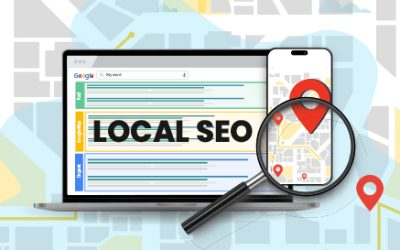In early times, healthcare professionals and dentists used to hang their boards to inform passers-by about their services. Today, the world is dominated by the Internet and healthcare practices are approaching healthcare website design experts to achieve their marketing goals. As traditional methods are no longer relevant, healthcare practices need to include the right SEO strategies to their website to improve their visibility to the targeted customers. When it comes to improving your reach in a specific locality, you need to apply local SEO strategies. This flexible approach is now used widely by healthcare practices because people always prefer accessing services in their location and most of the searches happen via mobile phones, here local SEO strategies can help them for fast and easy access.
During the holiday season, patients’ interests and behaviors may change, for instance, according to the American Society of Plastic Surgeons, holidays are the busiest time people choose to have cosmetic surgeries, because they will get enough time to recover and can take proper care of themselves.
In 2020, the things are a bit different with COVID-19 and the flu season having come together. There may be fewer patients looking for services, but a successful healthcare marketing strategy can prevent experiencing a slower holiday season for your medical practice. Regardless of the situation you should market your healthcare practice and increase engagement with your patients to show people that you are always available to service them. To increase engagement, you can promote social media campaign; send out a newsletter to patients to recap this year, etc. Along with that, include certain SEO strategies to boost your visibility in order to maintain existing patients and attract new patients.
Following are some useful local SEO tips that will help you reach patients in your locality:
- Accurate Local Business Listings: Local business listings are essential to provide customers with the right information at the start of their search process. If you have not bothered about local business listing till now, this holiday season is the perfect time to change and improve your listing. If you don’t do that, you will be missing people who are looking for your service. During the holiday season, the duration of working hours and the days working may change. So, it is essential to update your GMB listings to help your customers reach you at the right time. Here are the steps to set holiday hours on Google My Business (GMB).
- Sign in to Google My Business.
- If you have more than one location, open the one you want to manage.
- Click the Special hours section.
- Click Confirm hours next to an upcoming holiday or if you want to choose a different date, select Add new date.
- Enter the time of opening and closing for that day.
- Slide the circle to “Closed” to show that the location is closed all day.
- If you are working 24 hours, click Opens at and select 24 hours from the dropdown menu.
- If the closing hours you enter is past midnight, ensure that you set them properly.
- When you have completed entering the special hours, click Apply. For the designated days, your special hours will be visible to your customers on Google.
- Optimize On-page Content for Holiday Keywords: Another local SEO strategy for the holidays is to optimize your on-page content for holiday keywords. You can use tools such as Google Search Console, Google Keyword Planner, and SEMrush to find out the keywords that drive users to your website, and what pages people are going to after they arrive. It is important to remember that SEO is not an evergreen product, you need to stay up to date on seasonal keywords from year to year. This holiday season you should be prepared to share unique information across each of your location’s landing pages like special hours of operations, contactless services, etc.
- Be proactive about Google Q&A: To answer consumers’ most common questions, the Q&A section of GMB is an important local SEO strategy. An important thing to note is anyone can answer in your brand’s Google Q&A, so you have to provide brand-verified answers and that is crucial. During this situation, you have to create Q&A related to holidays and COVID 19 like holiday store hours, contactless experiences, etc.
- Prioritize your Reputation Management: To retain your customers, it is crucial to make them feel heard and cared for. To achieve that, your brand must have the tools and resources to actively monitor reviews across all major review platforms and also social media channels. According to a survey of consumer loyalty conducted by Yotpo, the majority of review writers expect a response from a business within 24 hours after giving feedback. It is one of the strongest ranking signals when determining your ranking in local search, it is more crucial than ever to prioritize and refine your reputation management strategy. Responding to both positive and negative reviews helps strengthen your relationship with your customers and attract new customers. To refine your reputation management, you should be consistent, punctual, and respond to all reviews.
- Optimize your Digital Presence: As stay at home closures become mandatory for most of the countries, consumers are forced to adopt the technology they were hesitant to try earlier. According to prmention.com, salesforce predicts up to 30% of U.S retail sales will be made through digital channels this year. To represent this change in consumer behavior, brands should optimize their digital presence to gain consumers’ trust and, ultimately their business. It is important to know that slow page speed, poor design, or anything that gives customers a poor experience will not help websites maintain a robust digital presence.
During the holidays, don’t make the mistake of not marketing your practice. If you do that, you are counting yourself out of the decision-making process for those patients who are seeking care. So, it is very important that you include these local SEO strategies in your healthcare website design to boost your website’s visibility, traffic and ranking.





